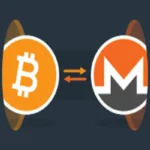Why are crypto communities important?

Crypto was never built with hand-holding in mind. No call centres, no regulators you can appeal to, no familiar institution standing behind the curtain. You step in and it’s just code, markets that never sleep, and a lot of noise. That’s where communities fill the gap. They act as the missing guidebook, the campfire where knowledge is swapped, the safety net when things go sideways. Forums, Discords, Telegram groups, weekend meetups in crowded cafés, scattered nodes that somehow stitch the industry together. In a world designed to be decentralized, it’s these human collectives that keep the whole thing usable.
Education, guidance, and access
Walking into crypto as a beginner feels like landing in a foreign city without a map. Wallets, gas fees, staking, liquidity pools, none of it is self-explanatory. Communities take the role of the local guide. Instead of manuals, you get peers telling stories: “I lost a seed phrase once, here’s what not to do.” “Don’t touch that exchange, I got burned there.” It’s messy but effective, a folk education that evolves in real time.
Everywhere you look, there are clusters dedicated to specific platforms or tools. Ask what seems like a naïve question, and chances are someone answers with a mix of patience and war stories. Mistakes aren’t just cautioned against; they’re illustrated through experience. That generosity of shared error lowers the barrier to entry more than any tutorial ever could.
The draw isn’t only about safety. Many are here because crypto is seen as an arena of outsized opportunity, with tokens and projects that can deliver far higher returns than traditional assets (source: https://icobench.com/kr/cryptocurrency/). That expectation fuels the constant flow of questions, guides, and debates inside these communities, because in a fast-moving market, shared knowledge can mean the difference between gains and losses.
Trust, accountability, and reputation
Blockchains may be “trustless,” but people are not. Sending coins to a stranger or backing an unknown project isn’t about code alone; it’s about whether you believe the human on the other side. Communities become the unofficial referees in these transactions. A username with history, a voice you’ve seen active for months, endorsements from veterans, all of that counts. It’s soft trust, but it’s often the only trust that matters.
Reputation inside these groups builds slowly and publicly. Someone who helps troubleshoot wallet issues week after week earns credibility. A trader who delivers on deals repeatedly gets the nod for bigger trades. In effect, communities create their own verification systems, less formal than KYC but surprisingly effective. When users wander into peer-to-peer trades or chase exotic yield strategies, these informal reputations often weigh heavily than smart contracts themselves.
And when scams appear, as they always do, it’s the community that shouts first. Warnings ripple across chats, screenshots circulate, moderators pin alerts. Without regulators, these groups become the only line of defence, filtering predators from the herd. It isn’t perfect, but it raises the cost of deception.
Business opportunities and professional networks
Many people join communities just to get their bearings. But over time, those chatrooms morph into job boards, deal rooms, and makeshift incubators. A casual question about wallets may lead to finding a developer. A regular trading partner turns into a business collaborator. Entire projects have started this way, not with formal pitches, but with conversations that stretched into partnerships.
For small traders and freelancers, these groups double as marketplaces. A string of honest trades with the same contact builds a foundation for bigger, private deals. Developers showcase reliability not through polished CVs but through their contributions in threads. Marketers, auditors, and designers all scout discussions looking for people who quietly demonstrate competence. It’s networking stripped of pretense: reputation earned in action, not in claims.
That’s why many professionals in blockchain circles say their careers didn’t begin in offices or LinkedIn messages. They began in Discord side channels, in long Telegram threads, in comment sections where trust was built word by word. Communities collapse the distance between hobbyist and professional, creating pipelines where talent gets spotted and opportunities emerge naturally.
Shared response to market shifts
Markets move faster than clarity. A government drops a policy paper at midnight, a token pumps 40% in an hour, a network fork creates confusion, and chaos is the baseline. Left alone, most individuals can’t parse it quickly enough. In communities, the noise gets digested. Headlines are broken down, legal language translated into plain speech, and implications debated on the fly. Instead of panic, you get a conversation. Instead of a blind reaction, you get perspective.
The response is often immediate. Within minutes of big announcements, chats light up with interpretations. Will this tighten liquidity? Does it threaten DeFi protocols? Which tokens will exchanges delist? These conversations don’t erase uncertainty, but they give shape to it. For newcomers, it’s the difference between drowning and treading water. For veterans, it’s an early warning system, sharpening instincts in real time.
Technical analysis gets the same treatment. Screenshots of charts, RSI debates, and Fibonacci lines were argued over late into the night. No one pretends it’s a substitute for doing your own research, but it acts as a running filter. A way of testing ideas against collective sentiment before taking action.
Cultural identity and shared ethos
Crypto isn’t just finance; it’s culture. Meme coins, NFTs, grassroots campaigns for privacy, these aren’t just products, they’re signals of belonging. Communities turn speculation into identity. They nurture values like decentralization, transparency, and financial autonomy, not through white papers but through everyday talk, jokes, and rituals.
The shared humor is telling. Jokes after brutal crashes, celebratory memes after sudden rebounds, these create bonds that spreadsheets can’t. People stay not only because they hope for profit, but because they feel part of a story. Communities, by co-creating slang, humor, and campaigns, give the industry its human face.
On the ground, this culture localizes. National groups adapt global tools to local realities, interpreting regulations, translating guides, and tailoring advice to different levels of literacy. In that sense, decentralization doesn’t erase difference; it blends with it. Communities become bridges between global technology and local experience, giving blockchain culture both its universality and its local color.







